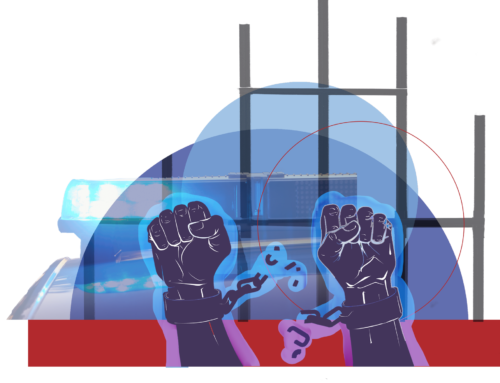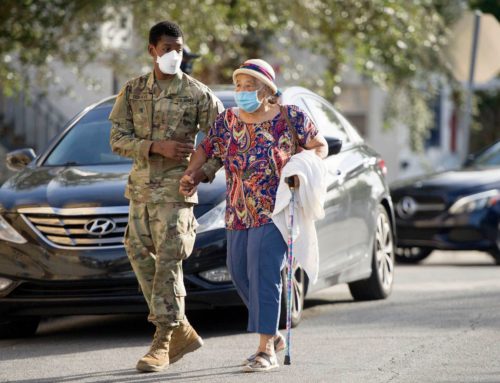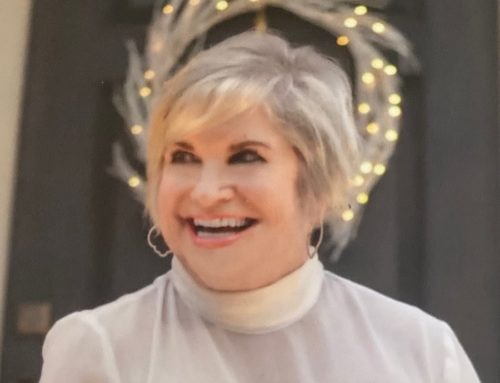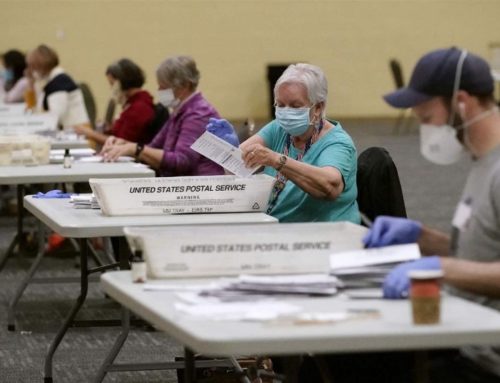In these changing times, it’s important to mark signs of progress.
The brutal death of George Floyd has galvanized Americans across our nation to address systemic racism, and sparked a renewed sense of urgency to remove confederate symbols and monuments. As I see these monuments falling in states like Mississippi, North Carolina, and right here in my home state of Louisiana, I am proud to witness this moment for our country.
We applaud these communities for their action. I, for one, encourage local elected officials in these communities to commit to the next step — the hard work of working towards racial equity and justice. I am hopeful, through our UNUM Fellows program, that more elected leaders will answer the call to make additional meaningful changes in their communities by committing to make racial and economic equity part of the fabric of their work.
I also see hope in some of our new polling, which shows several positive shifts in how white southerners view and understand poverty, systemic racism and economic opportunity. Racial gaps remain on these questions, and there remains much work, it is clear the last few weeks of listening, learning and action have created a reflective moment for the country.
These are all small signs of progress, for sure, but they provide an inflection point to move this work forward in a meaningful way.
Mitch Landrieu
Founder and President
WE WANT TO HEAR FROM YOU
Listening and learning from one another is a critical piece of this work. As we did inDivided By Design, we want to continue to uplift diverse voices and personal experiences from across the South.
That’s why we have created Southern Voices: A Reflection of America, a narrative project that aims to share people’s personal stories, perceptions and beliefs on living in the South during a time of change.
A post in not enough. We want to hear from you. We invite you personally to share your stories, thoughts and experiences during this time of change by responding to the following question this week:
- With the killing of George Floyd, it’s clearer than ever how our country is divided by race. Have you seen the race divide in your own community — or even experienced it yourself?
- How do you feel about confederate monuments and symbols and their tie to history of slavery, segregation, and colonialism?
By amplifying the voices within our communities, we hope to share truthful and diverse experiences that will expand the hearts and minds of many as we rebuild a more equitable nation together. We appreciate your willingness to share your voice and contribute to this important initiative.
NEW E PLURIBUS UNUM SURVEY SHOWS SOUTHERNERS MAKE SOME SHIFTS ON SYSTEMIC RACISM, ALTHOUGH HUGE RACIAL AND GENDER GAPS STILL EXIST
Last week, E Pluribus Unum released and discussed the results of a new survey that finds several positive shifts in how white southerners view poverty, systemic racism and economic opportunity, though large racial gaps in perceptions and attitudes on racism persist. This is the second in a series of surveys focused on race and class in the American South, the first of which was released in October 2019.
Founder and President Mitch Landrieu joined EPU Pollster Jim Gerstein and EPU Managing Director of Programs Roxanne Franklin Lorio to discuss the results of the survey. Listen to that conversation here.
More survey resources can be found here.
HEARD AROUND THE SOUTH
News and stories about southern communities
Alabama: The first real test of NASCAR’s banning of the confederate battle flag came Sunday at the Cup Series at the Talladega Superspeedway in Talladega.
Arkansas: A petition drive is under way to have a long-standing confederate monument in Arkansas’ second-largest city moved from the Sebastian County Courthouse grounds.
Florida: One woman battles to keep a confederate statue out of her community in Taveres.
Georgia: A state lawmaker, Rep. Shelly Hutchinson, has filed a new bill that would ban confederate monuments on public property.
Kentucky: Opinion: The Union, not the Confederacy, is Kentucky’s true legacy
Louisiana: Last week, Iberville Parish Council members unanimously voted to remove a statue of a confederate soldier in Plaquemine, which one council member called an insult to the descendants of slaves.
Mississippi: As symbols of the Confederacy fall, activists say Mississippi’s flag should be next
North Carolina: A 75-foot-tall monument that served as a tribute to fallen confederate soldiers was removed from State Capitol grounds after a night of protests.
Tennessee: The Confederate Soldiers’ Memorial Bridge sign and an accompanying monument were removed from their places in Clarksville.
Texas: Houston’s two confederate statues — both located in city-owned parks — were relocated ahead of the city’s Juneteenth celebrations.
Virginia: Two Richmond City Council members have called for the immediate removal of confederate monuments in Richmond.
Recent News & Commentary
What we’re reading
Brookings Institute: When it comes to public opinion on race, it’s not 1968 anymore
The killing of George Floyd by Minneapolis police officers and the nationwide demonstrations it triggered have crystallized the public’s changing attitudes on race in America in surprising ways. Accustomed as we are to deep political polarization, a compilation of polling on these questions shows the emergence of important areas of consensus that could serve as the basis of policing reforms.
New York Times: White Americans Say They Are Waking Up to Racism. What Will It Add Up To?
The sustained outcry over Mr. Floyd’s death has compelled many white Americans to acknowledge the anti-black racism that is prevalent in the United States — and to perhaps even examine their own culpability for it. It is as though the ability of white people to collectively ignore the everyday experience of black people has been short-circuited, at least for now.
Route Fifty: From Jacksonville to Louisville, Confederate Statues Are Coming Down
The removal of confederate statues and monuments has been a topic of frequent debates across the South since at least 2015, when white supremacist Dylann Roof killed nine black churchgoers at Emanuel African Methodist Episcopal Church in Charleston, S.C. But the issue has gained urgency during protests of the death of George Floyd in Minneapolis police custody, as demonstrators target them as symbols of slavery, white supremacy and segregation.
The Atlantic: The Confederacy Was an Antidemocratic, Centralized State
Americans are now debating the fate of memorials to the Confederacy — statues, flags, and names on Army bases, streets, schools, and college dormitories. A century and a half of propaganda has successfully obscured the nature of the Confederate cause and its bloody history, wrapping it in myth. But the Confederacy is not part of “our American heritage,” as President Donald Trump recently claimed, nor should it stand as a libertarian symbol of small government and resistance to federal tyranny.
Resources
Research and toolkits from across the country
Whose Heritage? Public Symbols of the Confederacy
The Civil War ended 154 years ago. It’s past time for the South — and the rest of the nation — to bury the myth of the Lost Cause once and for all.
Color of Change
Color Of Change helps people respond effectively to injustice in the world around us. They move decision makers in corporations and government to create a more human and less hostile world for Black people, and all people. Until justice is real.




